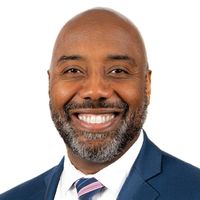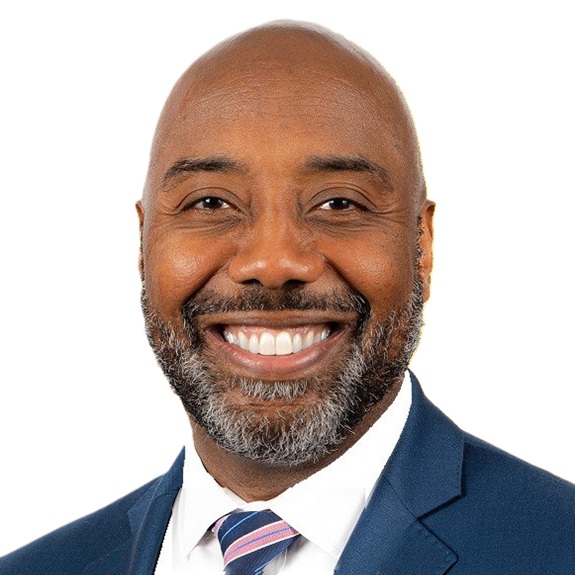Where to Start Financially After a Life-Changing Diagnosis
Dealing with an illness, yours or your child’s or that of another loved one, is hard enough without adding financial duress. Here are some considerations and suggestions for covering expenses.


Profit and prosper with the best of Kiplinger's advice on investing, taxes, retirement, personal finance and much more. Delivered daily. Enter your email in the box and click Sign Me Up.
You are now subscribed
Your newsletter sign-up was successful
Want to add more newsletters?

Delivered daily
Kiplinger Today
Profit and prosper with the best of Kiplinger's advice on investing, taxes, retirement, personal finance and much more delivered daily. Smart money moves start here.

Sent five days a week
Kiplinger A Step Ahead
Get practical help to make better financial decisions in your everyday life, from spending to savings on top deals.

Delivered daily
Kiplinger Closing Bell
Get today's biggest financial and investing headlines delivered to your inbox every day the U.S. stock market is open.

Sent twice a week
Kiplinger Adviser Intel
Financial pros across the country share best practices and fresh tactics to preserve and grow your wealth.

Delivered weekly
Kiplinger Tax Tips
Trim your federal and state tax bills with practical tax-planning and tax-cutting strategies.

Sent twice a week
Kiplinger Retirement Tips
Your twice-a-week guide to planning and enjoying a financially secure and richly rewarding retirement

Sent bimonthly.
Kiplinger Adviser Angle
Insights for advisers, wealth managers and other financial professionals.

Sent twice a week
Kiplinger Investing Weekly
Your twice-a-week roundup of promising stocks, funds, companies and industries you should consider, ones you should avoid, and why.

Sent weekly for six weeks
Kiplinger Invest for Retirement
Your step-by-step six-part series on how to invest for retirement, from devising a successful strategy to exactly which investments to choose.
Picture this: You’re doing well in both your professional and family life. You’ve planned for retirement and have ample savings on hand. Your child has just graduated from college. Then, after experiencing unexplainable back pain, your child goes to the hospital — just as a precaution. Days later, over the phone, the doctor delivers a diagnosis that no parent ever wants to hear: cancer.
It’s a scenario more common than you think: More than 15,000 children between the ages of birth and 19 are diagnosed with cancer each year in the U.S., according to the American Childhood Cancer Organization. And it’s exactly what happened to one father and son I know, whom we’ll refer to as Henry and Brian for their privacy.
For them, like many families in this situation, navigating cancer was a harrowing experience, and it took not just an emotional toll, but a financial one. Since treatment requires ongoing and regular inpatient and outpatient visits, as well as frequent hospitalizations, parents can rack up hundreds of thousands of dollars in medical debt, according to the U.S. Environmental Protection Agency.
From just $107.88 $24.99 for Kiplinger Personal Finance
Become a smarter, better informed investor. Subscribe from just $107.88 $24.99, plus get up to 4 Special Issues

Sign up for Kiplinger’s Free Newsletters
Profit and prosper with the best of expert advice on investing, taxes, retirement, personal finance and more - straight to your e-mail.
Profit and prosper with the best of expert advice - straight to your e-mail.
Dealing with cancer is hard enough without also having to navigate financial duress. With that in mind, here are several financial considerations that parents should be aware of if their child faces a life-changing diagnosis — and what they can do to cover their expenses.
1. Health insurance isn’t always enough.
Health insurance can be a lifesaver in tough medical situations — but don’t expect your health insurance carrier to cover everything. There may be additional costs depending on your plan’s deductible, out-of-pocket maximum and co-pays.
Some of the biggest expenses that most parents have difficulty accounting for stem from out-of-network health care. When Brian first underwent treatment, for instance, his health care provider was considered in-network. Because of that, his health insurance plan covered 90% of his monthly medical bills, saving Henry almost $70,000 a month. But somewhere along the way, the family was forced to change carriers, and they soon discovered Brian’s plan would no longer cover his hospital bills at the same rate. It wasn’t until they contacted the carrier that they were able to negotiate for in-network coverage.
2. Your finances will be impacted in more ways than you think.
Parents need to consider expenses beyond health care. That means being prepared for housing, transportation, paid and unpaid leave from work and other living expenditures, which can be significant — particularly if their child must receive treatment in a different city, state or country. Families who plan to relocate close to a treatment center can expect to spend thousands on the move.
Last-minute flights can also be a major expense, costing as much as $2,000 during the peak travel season. In Henry’s case, these expenses added up to an extra $10,000 a month on top of Brian’s medical bills.
3. There are numerous ways to fund treatment.
Finding the money to cover cancer treatment isn’t easy, but there are multiple options at your disposal. Consider leveraging these financial opportunities (in the order below) to help manage the cost of your child’s treatment:
- Savings and checking accounts. These should be your first go-to, as the money is readily available.
- Friends and family. Consider borrowing from your loved ones before you borrow from banks.
- After-tax investment accounts. Unlike retirement plans, after-tax investment accounts do not have hardship withdrawal provisions, which makes them easier to withdraw from in case of a medical emergency.
- Retirement accounts. Retirement plans such as Roth IRAs and 401(k)s allow you to withdraw cash penalty-free for unreimbursed qualified medical expenses, so long as those withdrawals don’t exceed 10% of your adjusted gross income.
- Life insurance. You can borrow against the cash value of your child’s permanent life insurance potentially tax-free. This means it’s important to lock in your child’s life insurance policy as soon as possible — children with critical illnesses are often considered uninsurable, and it’s one of the most efficient ways to create an estate for the next generation.
- Home equity line of credit. You can borrow up to 85% of the value of your home, minus what you owe, by opening a second mortgage. Note that, after the draw period, you typically will have to pay this mortgage off within 20 years.
- Liquidate real estate. If you have a substantial amount of equity in your home or other properties, you may be better off selling them altogether than taking on high-interest debt.
- Credits cards. With the average interest rate on credit cards sitting at a sky-high 27.81%, you should rely on them only as a last resort.
4. The situation for “adult kids” is different.
Brian was 23 years old when he received his diagnosis — but what if he had been older?
If your child is over the age of 26, you’ll need to prepare several legal documents right away, including a power of attorney, living will, health care proxy and advance health care directive, so that you can make decisions for your child if they are incapacitated or unwilling to undergo treatment.
If possible, you should pursue these rights as soon as your child turns 18, so that you’re not scrambling to obtain court orders while your child is undergoing treatment.
5. The end of formal treatment is not the finish line.
One of the biggest costs during this experience isn’t financial — it’s emotional. Understandably, you will likely be distracted by your child’s diagnosis, and you may not perform to your fullest, be it at work, home or church. The smallest moment — a smell, a sound, a television commercial — can bring you to tears. Your career goals will almost certainly become less of a priority.
That’s why it’s important to recognize that this journey won’t stop after your child has come home from the hospital. As Henry sees it, cancer treatment has three stages: diagnosis and initial care, formal treatment and resolution, and recovery. Formal treatment can take years, and the recovery stage, which is often the least talked about, can be the most challenging to face.
You may have to accept that your child may never be the same after chemotherapy due to the treatment’s impact on their body and mind. The long-term impact of this irrevocable shift is a weight both you and your family will carry forever. But now your child has another opportunity to pursue the life they want to live.
There is no such thing as over-saving or over-planning
Though no one wants to envision their child getting sick, evaluate your financial plan to make sure you are ready for the unexpected.
And if your child has received a cancer diagnosis, know that could be light at the end of the tunnel. Brian, for instance, ended up changing his professional direction. He pursued a law degree and is now a partner at a law firm.
Cancer and other life-threatening diseases are horrific enough. Getting your financial house in order won’t change the diagnosis, but it could help ease the burden so that you can focus on what really matters — getting your child the care they need.
This article has been obtained from an outside source and is provided as a courtesy by Stephen B. Dunbar III, JD, CLU, Executive Vice President of the Georgia Alabama Gulf Coast Branch, you should consult your own legal and financial professional regarding your particular circumstance. Applications for life insurance are subject to underwriting. No insurance coverage exists unless a policy is issued and the required premium to put it in force is paid. Guarantees are based on the claims-paying ability of the issuing insurance carrier.
Stephen Dunbar offers securities through Equitable Advisors, LLC (NY, NY 212-314-4600), member FINRA, SIPC (Equitable Financial Advisors in MI & TN). Annuity and insurance products offered through Equitable Network, LLC. Equitable Network conducts business in CA as Equitable Network Insurance Agency of California, LLC, in UT as Equitable Network Insurance Agency of Utah, LLC, in PR as Equitable Network of Puerto Rico, Inc. GE-6038756.1(10/23)(Exp.10/25)
Related Content
- Three Legal Documents Your Child Should Sign When They Turn 18
- Estate Planning Lessons from My Mother’s Cancer Diagnosis
- Estate Planning Tips: How to Pick POAs, Health Surrogates and Trustees
- Are You Prepared for Health Care Costs While in Retirement?
- Five Mistakes to Avoid When Writing a Financial Power of Attorney
Profit and prosper with the best of Kiplinger's advice on investing, taxes, retirement, personal finance and much more. Delivered daily. Enter your email in the box and click Sign Me Up.

Stephen Dunbar, Executive Vice President of Equitable Advisors’ Georgia, Alabama, Gulf Coast Branch, has built a thriving financial services practice where he empowers others to make informed financial decisions and take charge of their future. Dunbar oversees a territory that includes Georgia, Alabama and Florida. He is also committed to the growth and success of more than 70 financial advisers. He is passionate about helping people align their finances with their values, improve financial decision-making and decrease financial stress to build the legacy they want for future generations.
-
 Stocks Shrug Off Tariff Ruling, Weak GDP: Stock Market Today
Stocks Shrug Off Tariff Ruling, Weak GDP: Stock Market TodayMarket participants had plenty of news to sift through on Friday, including updates on inflation and economic growth and a key court ruling.
-
 You Received a Life Insurance Payout. Here's How to Avoid an IRS Audit.
You Received a Life Insurance Payout. Here's How to Avoid an IRS Audit.You received a big check from your loved one's life insurance policy. Will the IRS be expecting a check from you now?
-
 Supreme Court Strikes Down Trump Tariffs: What's Next for Consumers and Retailers?
Supreme Court Strikes Down Trump Tariffs: What's Next for Consumers and Retailers?Tax Law This landmark decision will reshape U.S. trade policy and could define the outer boundaries of presidential economic power for years to come.
-
 I'm a Financial Planner: This Is How You Can Legally Divorce the IRS for the Rest of Your Life
I'm a Financial Planner: This Is How You Can Legally Divorce the IRS for the Rest of Your LifeWith some careful planning focused on the standard deduction, retirees who have large sums in tax-deferred accounts can avoid unpleasant tax bills and even part ways with the IRS for good.
-
 9 Ways the Wealthy Waste Thousands in Taxes: A Checklist for What Not to Miss
9 Ways the Wealthy Waste Thousands in Taxes: A Checklist for What Not to MissThe tax code contains plenty of legitimate ways for the wealthy and business owners to cut taxes. Use this checklist to minimize taxes and stay compliant.
-
 When Estate Plans Don't Include Tax Plans, All Bets Are Off: 2 Financial Advisers Explain Why
When Estate Plans Don't Include Tax Plans, All Bets Are Off: 2 Financial Advisers Explain WhyEstate plans aren't as effective as they can be if tax plans are considered separately. Here's what you stand to gain when the two strategies are aligned.
-
 Counting on Real Estate to Fund Your Retirement? Avoid These 3 Costly Mistakes
Counting on Real Estate to Fund Your Retirement? Avoid These 3 Costly MistakesThe keys to successful real estate planning for retirees: Stop thinking of property income as a reliable paycheck, start planning for tax consequences and structure your assets early to maintain flexibility.
-
 I'm a Financial Planner: These Small Money Habits Stick (and Now Is the Perfect Time to Adopt Them)
I'm a Financial Planner: These Small Money Habits Stick (and Now Is the Perfect Time to Adopt Them)February gets a bad rap for being the month when resolutions fade — in fact, it's the perfect time to reset and focus on small changes that actually pay off.
-
 Social Security Break-Even Math Is Helpful, But Don't Let It Dictate When You'll File
Social Security Break-Even Math Is Helpful, But Don't Let It Dictate When You'll FileYour Social Security break-even age tells you how long you'd need to live for delaying to pay off, but shouldn't be the sole basis for deciding when to claim.
-
 I'm an Opportunity Zone Pro: This Is How to Deliver Roth-Like Tax-Free Growth (Without Contribution Limits)
I'm an Opportunity Zone Pro: This Is How to Deliver Roth-Like Tax-Free Growth (Without Contribution Limits)Investors who combine Roth IRAs, the gold standard of tax-free savings, with qualified opportunity funds could enjoy decades of tax-free growth.
-
 One of the Most Powerful Wealth-Building Moves a Woman Can Make: A Midcareer Pivot
One of the Most Powerful Wealth-Building Moves a Woman Can Make: A Midcareer PivotIf it feels like you can't sustain what you're doing for the next 20 years, it's time for an honest look at what's draining you and what energizes you.